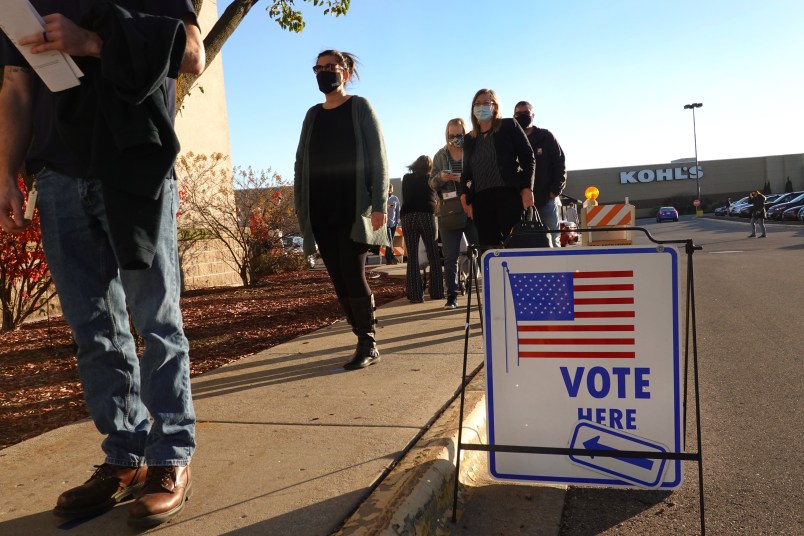With the caveat that there is still a few hours left of polling places being open, election officials and voter advocates are beginning to express some relief that they’ve made it this far without any major election fiascos.
That’s not to say that everything at polling places has gone perfectly on Election Day. But the disruptions, for the most part, have been of the run-of-the-mill challenges that are the norm for every Election Day — historic pandemic or not.
“We still have three hours and 45 minutes or so until the polls close. So I want to knock on wood when I say this. But so far administratively, it has been a superb day,” Minnesota Secretary of State Steve Simon said Tuesday evening.
On a call arranged with reporters Tuesday afternoon, Deborah Cronmiller of the Wisconsin League of Women voters said that things at most polling places were running “smoothly.”
At the start of the day, there were reports of delayed polling place openings across the country, an issue that is seen during every election that could be caused by technical issues or other mix-ups. In Franklin County, Ohio, election officials could not fully implement the electronic poll books, so shifting to paper backups caused a late start at some locations Tuesday morning. But those backlogs had been mostly “settled out,” Jen Miller, of the Ohio League of Women Voters said.
In North Carolina, polling place hours have been extended at some locations due to delays in getting started.
It’s worth emphasizing that while any inconvenience to voters isn’t ideal, these minor problems are what election officials anticipate and prepare for. And it’s worth noting that by and large, they’re handling these types of things going awry with a poll worker staff made up with a larger than usual percentage of first time poll workers.
In some places, like Pennsylvania, election officials are also working with relatively new equipment.
“All of those considered and even with those things, it was a very manageable morning,” Lee Soltysiak, the chief clerk of Pennsylvania’s Montgomery County, told TPM.
Even before the pandemic, election experts were on high-alert for any foreign interference threats, after the attacks by Russia in 2016. On that cyber-front, activity has been relatively quiet, according to senior officials at CISA, the arm of the Department of Homeland Security that assists election administrators with cyber security.
“There is no spiking the football here, we are acutely focused on the mission at hand,” the official said. “Based on what we’re seeing, at least on the cyber activity directed at state and local networks, it is certainly below what we’ve previously seen.”
Matt Shuham contributed to this report.



